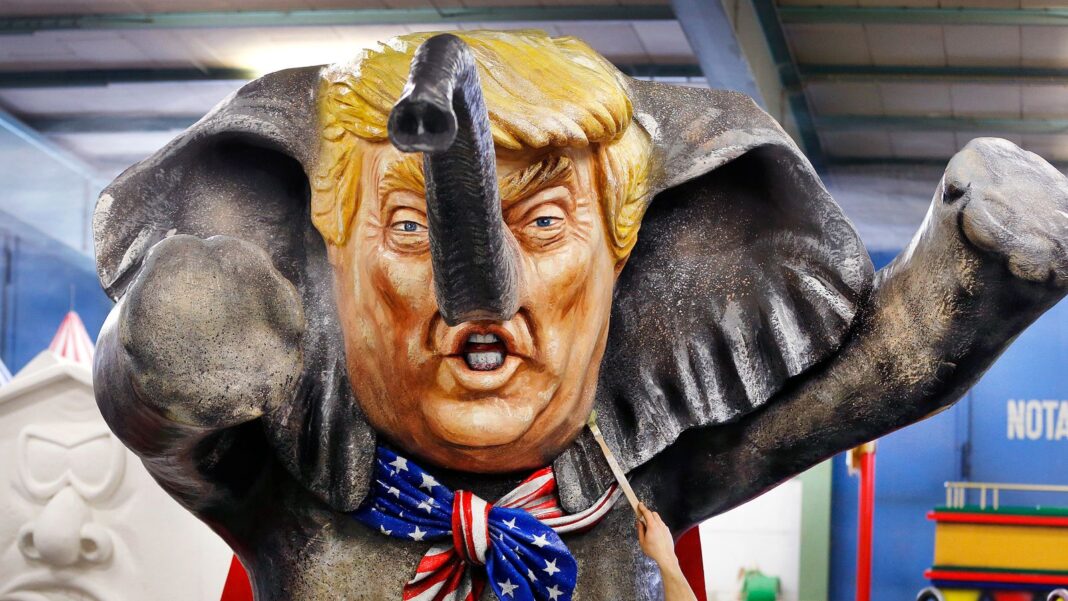Leaders’ statements were an attempt to fortify Western support for Ukraine in the long term, while the elephant in the room lingered.
As US President Joe Biden and German Chancellor Olaf Scholz stood side by side at a Berlin news conference, they repeatedly showcased their “strong” transatlantic bond to the world.
Biden described Germany as the “closest and most important ally” of the United States, Scholz said US-German “good relations can’t be taken for granted”.
(L-R) Sir Keir Starmer, Joe Biden, Olaf Scholz, Emmanuel Macron. Pic: Reuters
It was a co-ordinated statement about “sustaining support” long term for Ukraine in its war against Russia.
And as Biden repeated the words “we cannot let up, we cannot” and Scholz re-emphasised a message of unity with “we are with Ukraine for as long as needed”, a few hours later, Prime Minister Sir Keir Starmer echoed the same sentiment: “We remain united in support for Ukraine.”
A largely ignored issue, however, which seems to have left European officials unsettled, is the question over who the next US leader might be.
It is the elephant in the room during Biden’s “valedictory” visit to Germany that if Donald Trump wins the US election next month, all these conversations about support for Ukraine and the stance taken on the Middle East conflict could prove meaningless.
When asked about “Trump-proofing” European defence in case he returns to power, and may have other priorities, Starmer largely ignored the question.
The issue is that Trump has indicated that he would be more reluctant than Biden to continue to support Ukraine, and US aid to allies in NATO may come with conditions.
He also describes himself as the “best friend that Israel has ever had”.
As the United States is also currently the biggest military backer of Ukraine, a lot could be at stake.
Read more:
Ultimate guide to the US election?
The demographic divides that will decide the vote
This content is provided by Spreaker, which may be using cookies and other technologies.
To show you this content, we need your permission to use cookies.
You can use the buttons below to amend your preferences to enable Spreaker cookies or to allow those cookies just once.
You can change your settings at any time via the Privacy Options.
Unfortunately we have been unable to verify if you have consented to Spreaker cookies.
To view this content you can use the button below to allow Spreaker cookies for this session only.
👉 Click to subscribe to the Sky News Daily wherever you get your podcasts 👈
For now, the consensus for “the quad” (the UK, US, German and French leaders) is a continued show of unity for Ukraine, and a push for a ceasefire in the Middle East.
But a lot can change in a few weeks.







